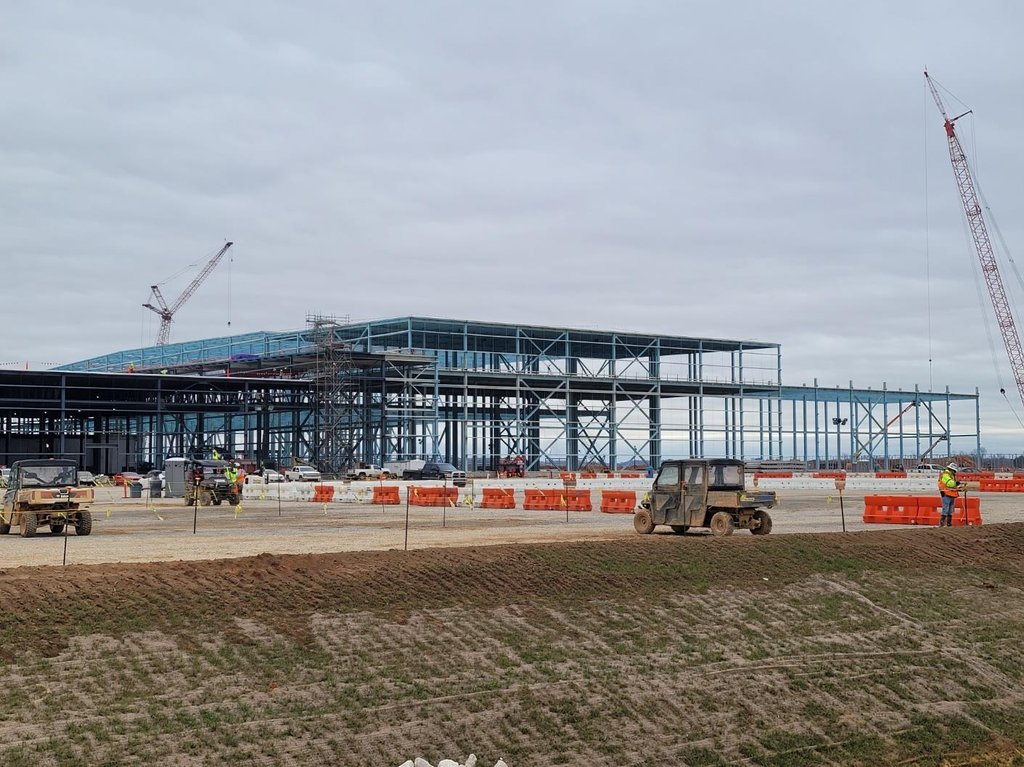Industrials
US approves $9.63b loan to SK On, Ford’s battery joint venture
 |
Construction site of BlueOval SK’s battery manufacturing plant in Kentucky (SK On) |
BlueOval SK, a joint venture between SK On and Ford Motor Co., received approval from the US Department of Energy for a $9.63 billion loan Monday, securing funds to construct three battery manufacturing plants in the US.
The loan is part of the government’s Advanced Technology Vehicles Manufacturing program, which offers low-cost loans with an interest rate equivalent to the US 10-year Treasury bond at approximately 4 percent, according to SK On. It targets companies producing electric vehicles, battery cells and other advanced technology vehicles and components. The loan is due by July 15, 2040, though the deadline is subject to change.
“The funds will be used to complete construction of three manufacturing plants – two in Kentucky and one in Tennessee – by next year,” said an SK On official. “It is meaningful that BlueOval SK has received the go-ahead after 10 months of company inspection (by the US government).” The annual production capacity of the facilities is projected at 20 gigawatt-hours, enough to power around 1.2 million EVs. SK On batteries will be installed in Ford’s E-Transit Van, F-150 Lightning Pickup and other battery-powered lineups.
Following LG Energy Solution and General Motors’ Ultium Cells’ $2.5 billion loan, SK On became the second Korean battery company to get the green light from the ATVM program for its US joint venture. Meanwhile, a $7.5 billion loan approval for Samsung SDI and Stellantis’ Starplus Energy remains pending.
The Energy Department’s final approval comes after SK Innovation and SK On’s commitment last month to provide a $4.82 billion financial guarantee for the loan. BlueOval SK received initial loan approval in June last year, but it was canceled because the company could not secure third-party financing in case of a default.
The ATVM loan is expected to reduce the financial burden for the debt-ridden SK On to ramp up its production expansion in North America. In the third quarter of this year, the battery-maker turned a profit for the first time since it was established in 2021, though its debt remains at approximately 23 trillion won ($16 billion).
Despite the $9.63 billion loan, industry insiders say uncertainties lie ahead for the battery-maker’s financing scheme for its US operations due to the second Donald Trump administration’s pledge to scrap the Inflation Reduction Act, which grants up to a $7,500 EV consumer subsidy.
While the ATVM loan program is not part of the IRA, it removed the $25 billion cap on the loan and allocated $3 billion in funds to cover the potential costs of issuing the loan. “It is challenging, even for Trump, to cancel a loan that had already been taken out,” said Lee Ho-geun, a car engineering professor at Daeduk University. “However, he could potentially accelerate the repayment schedule of the loan faster than the planned expiration date.”
By Byun Hye-jin (hyejin2@heraldcorp.com)








